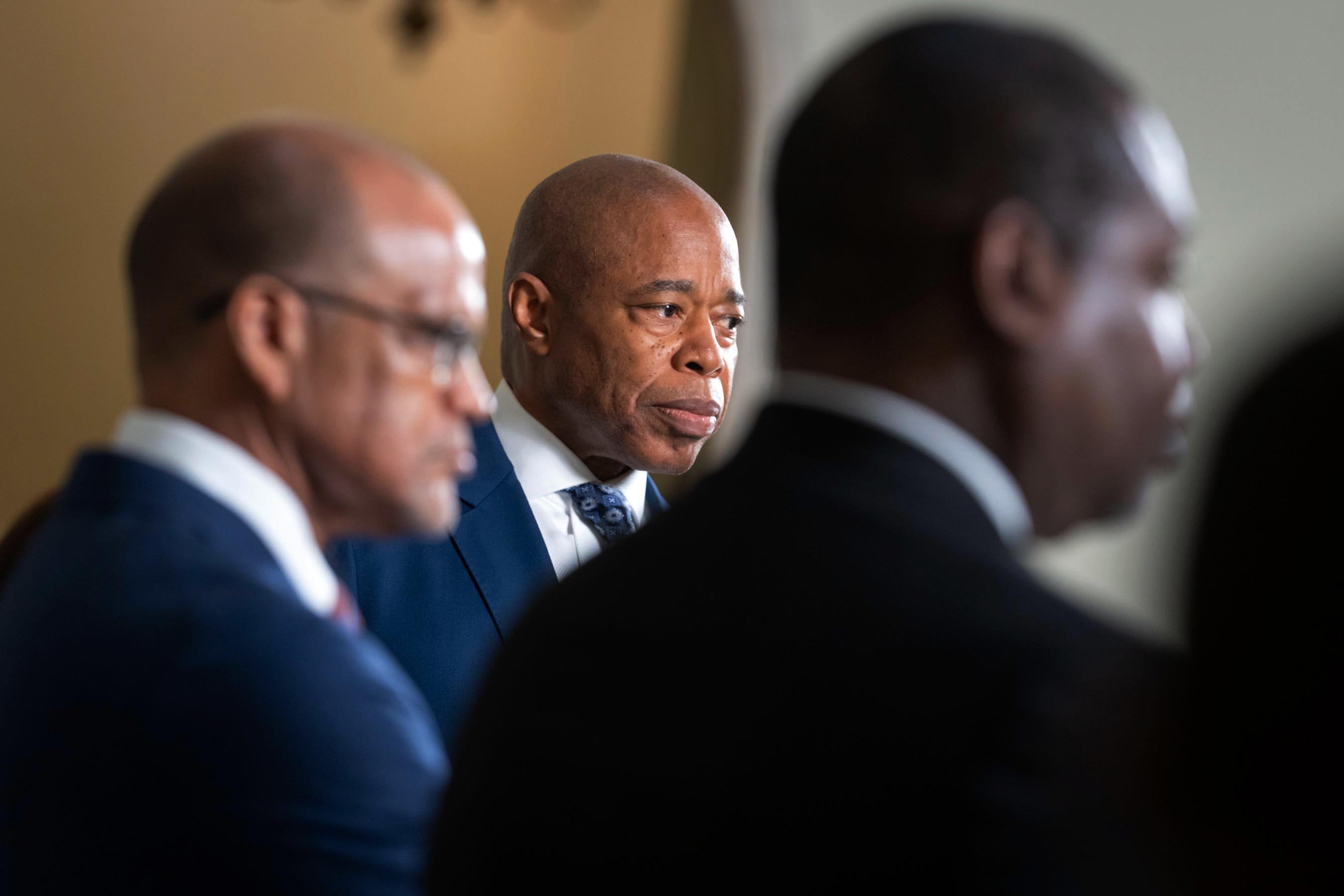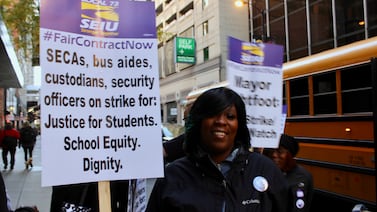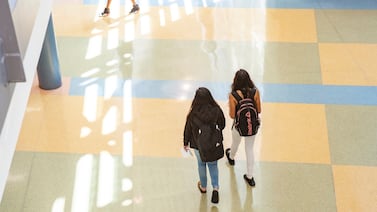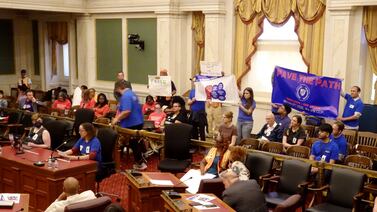A new round of budget cuts announced Tuesday won’t hit New York City schools as hard as Mayor Eric Adams initially outlined, but will still add up to more than $100 million for next fiscal year, including further cuts to early childhood education.
Adams said last fall that the Education Department, like other city agencies, would have to trim its budget by 5% of the city’s contribution in January, following a previous 5% cut in November.
But during Tuesday’s announcement of the preliminary budget, Adams said the city’s fiscal situation has significantly improved since last fall, thanks to higher-than projected revenues and lower-than-projected spending on supporting the influx of migrants and asylum seekers.
As a result, several city agencies including the Education Department got full or partial reprieves from this month’s 5% cut. New cuts to the Education Department totaled about 0.6%, according to budget officials.
Still, the Education Department will face more than $100 million in new cuts starting next fiscal year, on top of the $600 million in cuts announced in November.
The new cuts include $50 million from the city’s prekindergarten and 3-K programs. Former Mayor Bill de Blasio dramatically expanded the free program for the city’s 3-year-olds using an infusion of one-time federal pandemic aid, but 3-K struggled to fill the new seats. Adams already announced in November a $120 million cut to the early childhood education budget next year, and the new $50 million cut outlined Tuesday could involve eliminating unfilled seats, according to budget documents. Budget officials said Tuesday that about 30% of 3-K seats are unfilled.
Those reductions represent “the biggest cuts to early childhood in more than a generation,” said Gregory Brender, chief of policy and innovation at the Day Care Council of New York, an organization that represents roughly 200 child care centers and other programs. “When you look at the magnitude, it’s hard to not see it having a drastic effect on services for children and families.”
Brender acknowledged that some seats are unfilled, but argues the city should be doing much more to fill them, especially given the high cost of child care and the city’s broader affordability crisis that is driving some families away.
The new cuts also include $51 million in reduced spending on non-staff costs in some central offices, according to budget officials. They didn’t elaborate on what those cuts will entail.
Advocates have raised alarms that a smaller Education Department budget could affect a range of day-to-day services. Hundreds of fewer staff on hand could mean it will “take longer for immigrant students to get a school placement, for students who are homeless to get a bus route, and for students with disabilities to get services,” Kim Sweet, executive director at Advocates for Children, said in a statement.
Additionally, though the city’s Education Department is expecting to chip in $80 million to run Summer Rising — which had largely been funded through federal COVID relief dollars — the popular program will still see a big cut. The Education Department runs the morning instruction while the Department of Youth and Community Development oversees the afternoon enrichment, which is run by community based organizations. The city is calling for a $20 million cut from DYCD’s budget for the program.
Aside from Summer Rising, the preliminary budget offers no other commitments to use city money to replace expiring federal pandemic aid – leaving the fate of hundreds of social workers, staffers supporting homeless students, and other programs up in the air.
“At a time when we have a youth mental health crisis, record-high student homelessness, systemic violations of the rights of students with disabilities, and an increase in newly arrived immigrant students enrolling in our schools, we cannot afford to roll back these important programs,” Sweet said.
Overall cuts to Education Department less than expected
Adams attributed the rosier fiscal picture to “responsible and effective management,” including previous cuts that helped balance the budget as well as the city’s new policy limiting shelter stays for migrant adults and families. That directive, which forces people staying in shelters to either reapply for space in a different shelter or find an alternate housing arrangement, has slowed the pace of migrants entering the shelter system, Adams said.
In the days leading up to Tuesday’s preliminary budget release, Adams had reversed several of the cuts announced in November, including a $10 million cut to community schools, citing the improving fiscal conditions.
But critics have contended that the budget situation was never as bleak as Adams claimed, and have accused the mayor of implementing unnecessarily draconian cuts to ramp up the pressure on the state and federal governments to increase aid to the city.
“Setting your house on fire and then putting it out doesn’t make you a hero,” Ana Maria Archila and Jasmine Gripper, co-directors of the New York Working Families Party, said in a statement.
Adams’ preliminary budget announcement came the same day that Gov. Kathy Hochul released her own budget plan, which includes $2.4 billion in aid to the city to provide housing and other basic services to migrants.
Adams said the city is still reviewing Hochul’s budget. He floated the possibility of canceling another round of budget cuts that’s supposed to come in April if aid from the state is sufficient.
Michael Elsen-Rooney is a reporter for Chalkbeat New York, covering NYC public schools. Contact Michael at melsen-rooney@chalkbeat.org.








